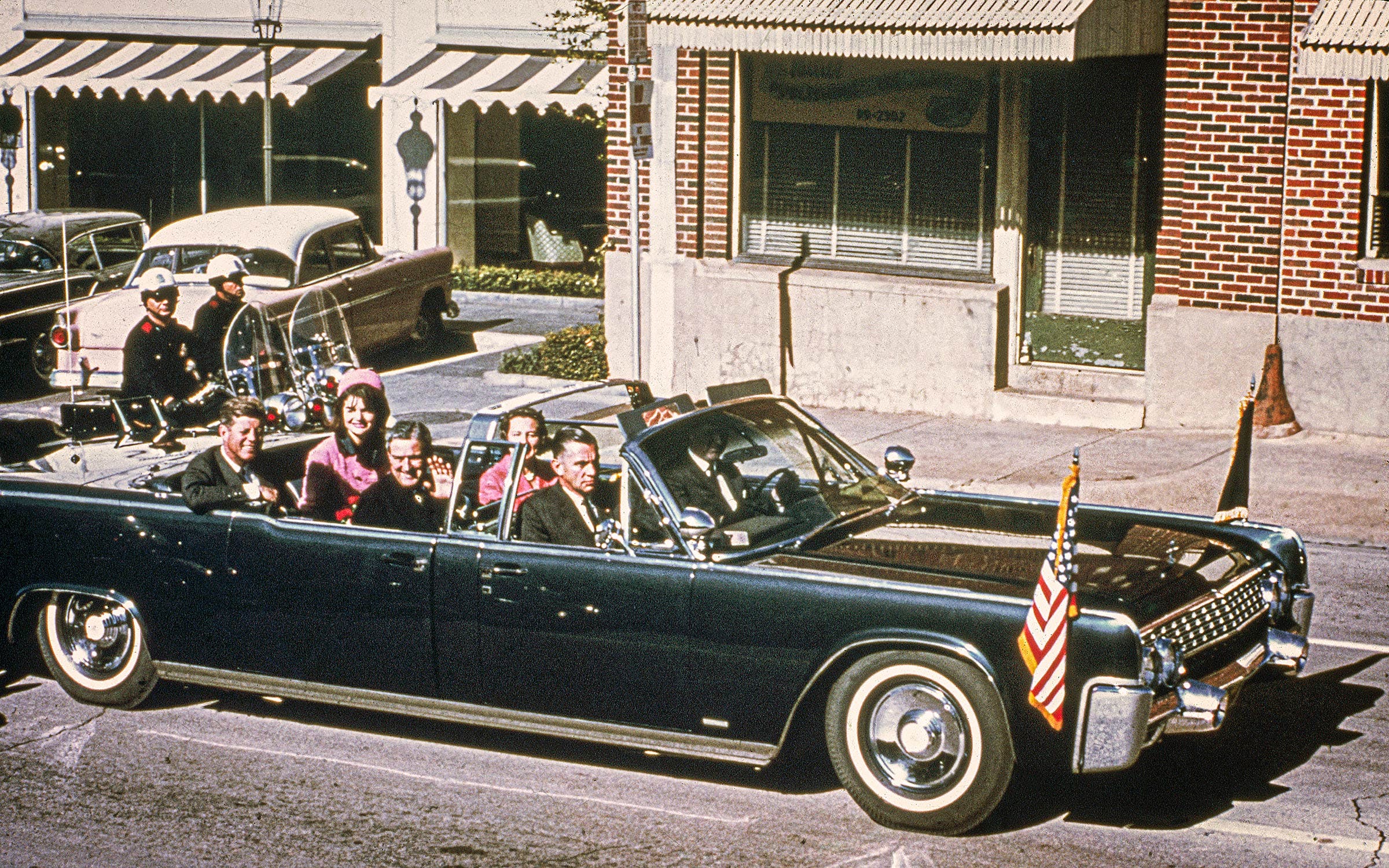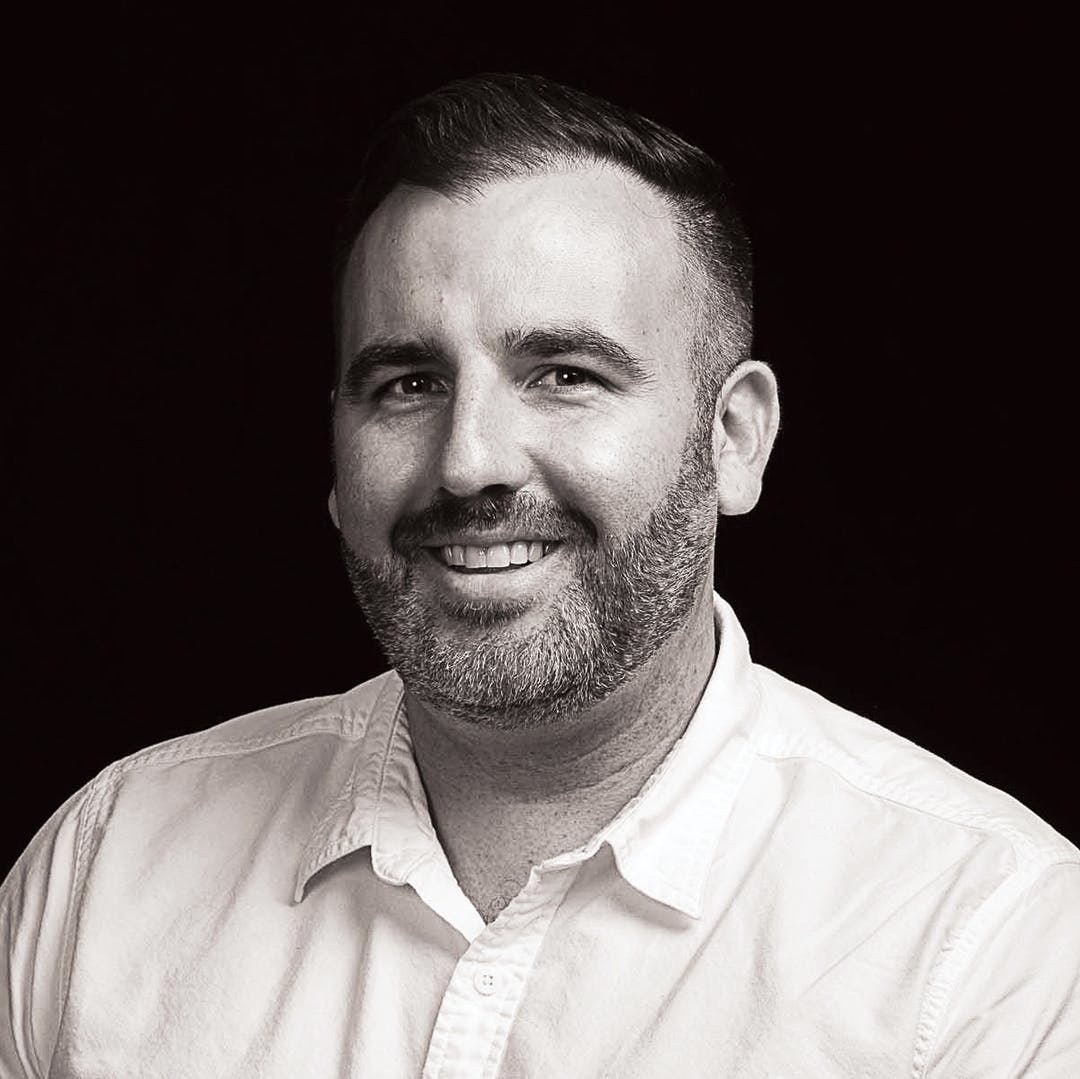Sixty Years After JFK’s Assassination, Two Authors Claim “Incontrovertible Proof” of a “Conspiracy”
Sixty Years After JFK’s Assassination, Two Authors Claim “Incontrovertible Proof” of a “Conspiracy”
In their new book Chokeholds, researchers argue Lee Harvey Oswald was just one piece of a sprawling conspiracy—one that other investigators claim never existed at all.

Bettmann/Getty
In the brutal world of hand-to-hand combat, a chokehold is a constriction technique that, when applied correctly, cuts off an opponent’s air supply and renders them unconscious. Though controversial, especially when used by law enforcement, chokeholds are a standard element of military training, self-defense classes, and martial arts disciplines like Brazilian jiu-jitsu and judo.
Neither Paul Bleau nor James DiEugenio are martial artists. Both graying, middle-aged researchers with Master’s degrees, neither man appears to represent much of a physical threat. Instead, both have spent the past few decades inside the investigative world’s equivalent of the Octagon, going toe-to-toe with conspiracists, historians, true crime investigators, and government agencies in their relentless effort to uncover what many consider the greatest mystery in American history: Who killed President John F. Kennedy?
The names Bleau and DiEugenio may sound familiar to anyone who’s dipped their toe into the feverish world of JFK assassination theories, which continue to prosper thanks to the case’s unique ability to maintain a steady drip of new revelations year after year, most recently about the “magic bullet” theory and the CIA lying about Lee Harvey Oswald for decades. DiEugenio is credited as the writer for Oliver Stone’s controversial 2021 documentary, JFK Revisited: Through the Looking Glass, the same film in which Bleau, a business professor who has spent decades researching the assassination, makes an appearance. (The documentary, a follow-up to Stone’s also-controversial 1991 film JFK, was broadly lambasted for advancing the conspiracy theory that the CIA orchestrated the president’s assassination, and concerns around fact-checking led some streaming platforms to reject it).
The result of their latest round of grappling is The JFK Assassination Chokeholds, a newly published book in which Bleau, DiEugenio, and three other researchers (all of them experienced lawyers) claim they’ve compiled “incontrovertible” evidence demonstrating reasonable doubt about Oswald’s guilt, as well as “undeniably convincing” evidence that the president fell victim to a conspiracy, one likely involving individuals with close ties to intelligence agencies, the Mafia, and Cuban exiles. In this space, a “chokehold” is not a form of physical combat but evidence worthy of a courtroom—the foundation of arguments for which countermoves aren’t readily available, the authors maintain. “It’s not a legal term,” Bleau explained during a recent interview. “But it does refer to a conclusion based on evidence that is inescapable.”
Six decades after JFK’s murder, theories around the events of that tragic day in 1963 have continued to swirl. And yet, as wars unfold in Ukraine and Gaza, climate disasters mount, and the likely Republican nominee for president faces 91 felony counts, it’s worth asking why an event six decades in the past—however shocking or traumatic—should continue to hold the public’s interest. The answer, according to Bleau, is that theories spawned by the Kennedy assassination challenged realities once taken for granted, unleashing trends whose influence reverberates through our politics today. “It’s what spurred the loss of trust in government, media, and authority figures,” Bleau said, referring to Kennedy’s murder. “Some of that loss can be traced to the Warren Commission, which many Americans didn’t trust, and then that moment is followed by Vietnam, more political assassinations, Watergate, Iran-Contra, weapons of mass destruction, and so on.”
Over ten chapters, their evidence, a mixture of historical documents, witness statements, and detailed photographic analysis, is often so voluminous that it threatens to overwhelm a casual reader. At times, it follows a well-trodden path that walks readers through longstanding debates about impossible bullet trajectories and allegations that Kennedy’s autopsy was intentionally botched. The book’s chapter on the Warren Commission—the group appointed by President Johnson to investigate Kennedy’s assassination within days of his death—highlights the words of investigative insiders: people like Richard Schweiker, Richard Sprague, and Robert Blakey, who investigated the assassination as the chief counsel and staff director to the U.S. House Select Committee on Assassinations from 1977 to 1979, the same committee that eventually concluded that Kennedy “was probably assassinated as a result of a conspiracy.”
But the work also includes lesser known, equally provocative assertions, some of which may strike readers as deeply compelling, and others as too outlandish to take seriously. For example: the team’s contention that Oswald was one of a handful of potential patsies scattered across the United States, waiting to be activated by powerful individuals with links to the intelligence community in cities such as Tampa, Los Angeles, and Chicago. The authors admit they don’t have direct evidence linking Oswald to handlers intent on using him like a pawn, but they do believe, by identifying other domestic actors associated with anti-Castro groups, that they’ve discovered a “template” that could be employed to carry out a crime so shocking the U.S. population would demand retribution against a geopolitical enemy like Cuba. And while Oswald certainly had a close association with intelligence services, the authors maintain, it’s not because he was an adept operative—more like “a useful idiot.” “He doesn’t have a good education, he’s not really good with guns, and he’s no James Bond,” Bleau said. As is often the case with deep dives into the Kennedy drama, whether it’s unpacking Oswald’s modus operandi or Jack Ruby’s alleged mob ties, the line between brilliant and deluded dot-connecting is an especially fine one.
Of course, when independent researchers advance fringe theories in the public square, those committed to more mainstream interpretations of history feel called upon to respond. “I love it,” said Fred Litwin, a Canadian author who considers himself a professional JFK conspiracy debunker, and also considers himself something of an investigative brawler. “It keeps me busy.” On his blog, On the Trail of Delusion, he has gone toe-to-toe with Bleau, DiEugenio, and Stone numerous times, challenging many of their claims, including the notion that a plot to kill Kennedy existed in multiple cities. “That one is so ridiculous,” Litwin said. “The Chicago claim came from a Secret Service agent who went to prison for fraud, and when the House Committee investigated the plot they couldn’t find any evidence from Secret Service agents, FBI agents, or reports at the time in Chicago or any other cities.”
But despite Litwin’s dismissal, such theories have continued to capture the national imagination. As the sixty-year anniversary of the assassination approaches, what exactly occurred on that November day in Dallas remains a difficult question for most Americans to answer, with a significant majority (65 percent) continuing to believe that Kennedy’s alleged murderer, Lee Harvey Oswald, did not act alone, according to a Gallup poll this month. The recent behavior of elected leaders continues to fuel the flames of conspiracy. Despite a 1992 law mandating the release of government files connected to the murder, presidents Trump and Biden have both declined to release several thousand documents that intelligence agencies have fought to keep sealed. Some experts claim the remaining documents are likely to reveal little beyond what’s already known about the killing, while others, such as Jefferson Morley, an author and the vice president of the Mary Ferrell Foundation, an online depository of JFK records, claim they contain concrete evidence of a CIA-approved plot involving Oswald, according to the Dallas Morning News.
Litwin, who is quoted in a recent New York magazine article exploring Morley’s research, isn’t moved. Though he doesn’t doubt the sincerity of Morley, Bleu, DiEugenio, and Stone, he believes they’re peddling misinterpretations of history because, for many, the truth about JFK’s death is still hard to accept. “I think the ideas they push persist because Kennedy was a man who brought a lot of enthusiasm to the presidency and to Americans and then he was killed by a twenty-three-year-old Marxist runt,” he said. “It’s much more pleasant to have him killed for a cause like Vietnam or the military-industrial complex—it makes his life more meaningful and majestic.”
Investigators of fact, from detectives to historians and journalists, are trained to think about the world through the lens of Occam’s razor, the idea that when attempting to solve a complicated puzzle that has multiple explanations, the simplest one is typically the right one. Throughout Chokeholds, as well as many other explorations of Kennedy’s murder over the years, it doesn’t escape notice that this seems to be one of the few cases in which explanations for the president’s demise grow far more head-scratching over time, not less. Asked how they explain this peculiarity, the Chokeholds authors offered several explanations whose merit is worthy of its own debate. DiEugenio said efforts to keep government records classified had been so successful for so long that the truth had become unnecessarily shrouded in mystery and complexity. “If we’d had all this information in the 1960s, when it was still fresh in people’s minds and witnesses were still alive, I believe the case would have probably been solved,” he said. Bleau agreed, but opted for a more conspiratorial take, noting that cover-ups are, by their very nature, meant to remain covered up. “We’re dealing with the Mafia and the CIA, after all,” he said. “These are people who understand secrecy better than anyone else.”
- More About:
- Books
- Texas History
- JFK Assassination
- JFK



